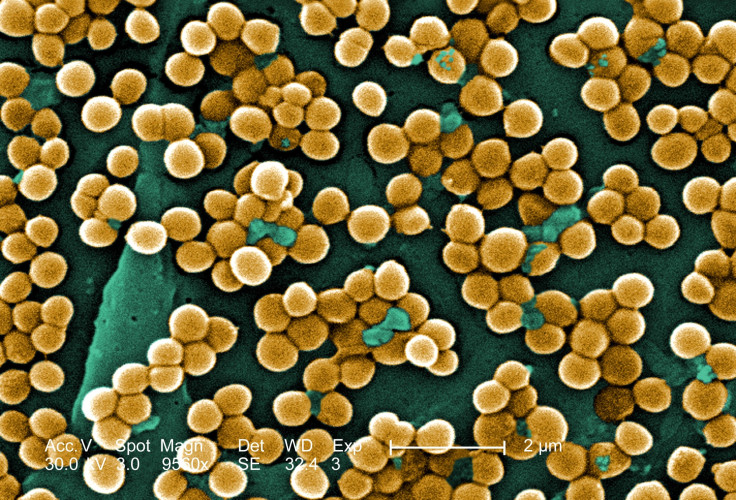MRSA, C. Difficile Superbugs: Wet Wipes Spreading Deadly Bacteria In Hospitals: Study

Efforts to use wet wipes to clean hospital surfaces appear to be backfiring, a study found. Not only do the wipes fail to kill bacteria consistently, they can then spread the pathogens to new surfaces when the wipe is reused, thus transferring deadly superbugs such as MRSA and C. difficile to new environments.
Scientists at Cardiff University's School of Pharmacy and Pharmaceutical Science tested seven different wipes commonly used in U.K. hospitals and found their ability to remove the bacteria MRSA, C. difficile and Acinetobacter after a 10-second swipe was inconsistent. In fact, they even spread bacteria to other surfaces rather than killing pathogens.
"Hospital staff must be educated to ensure these products are used properly and will not cause an unnecessary risk to staff and patients," Jean-Yves Maillard, the author of the study, which was was published in the American Journal of Infection Control, said, the BBC reported. "A single wipe should not be used on multiple surfaces."
Ultimately, the study showed detergent wet wipes frequently used for cleaning in hospitals "are not up to the job," Maillard added, Yahoo! News reported.
The World Health Organization considers antibiotic resistance a pressing concern and major threat to global public health. It noted medical workers can help combat resistance by "enhancing infection prevention and control in hospitals and clinics," where the infections are often acquired. WHO estimated "a high percentage" of these infections were caused by bacteria, such as MRSA, that didn't respond to multiple drugs intended to kill it.
In 2012, the bacteria C. difficile contributed to 1,646 deaths and MRSA helped cause 292 deaths in England and Wales, the BBC reported.
Previous studies have indicated common disinfectants could actually be increasing resistance among these superbugs, fortifying them against not just antibacterial cleaners but also drugs that are supposed to help kill them.
The implications of these findings are not limited to medical settings. Bacteria commonly found in the home also can become resistant through the use of disinfectants or could be spread by similar wipes intended to clean surfaces of illness-causing pathogens.
© Copyright IBTimes 2024. All rights reserved.






















